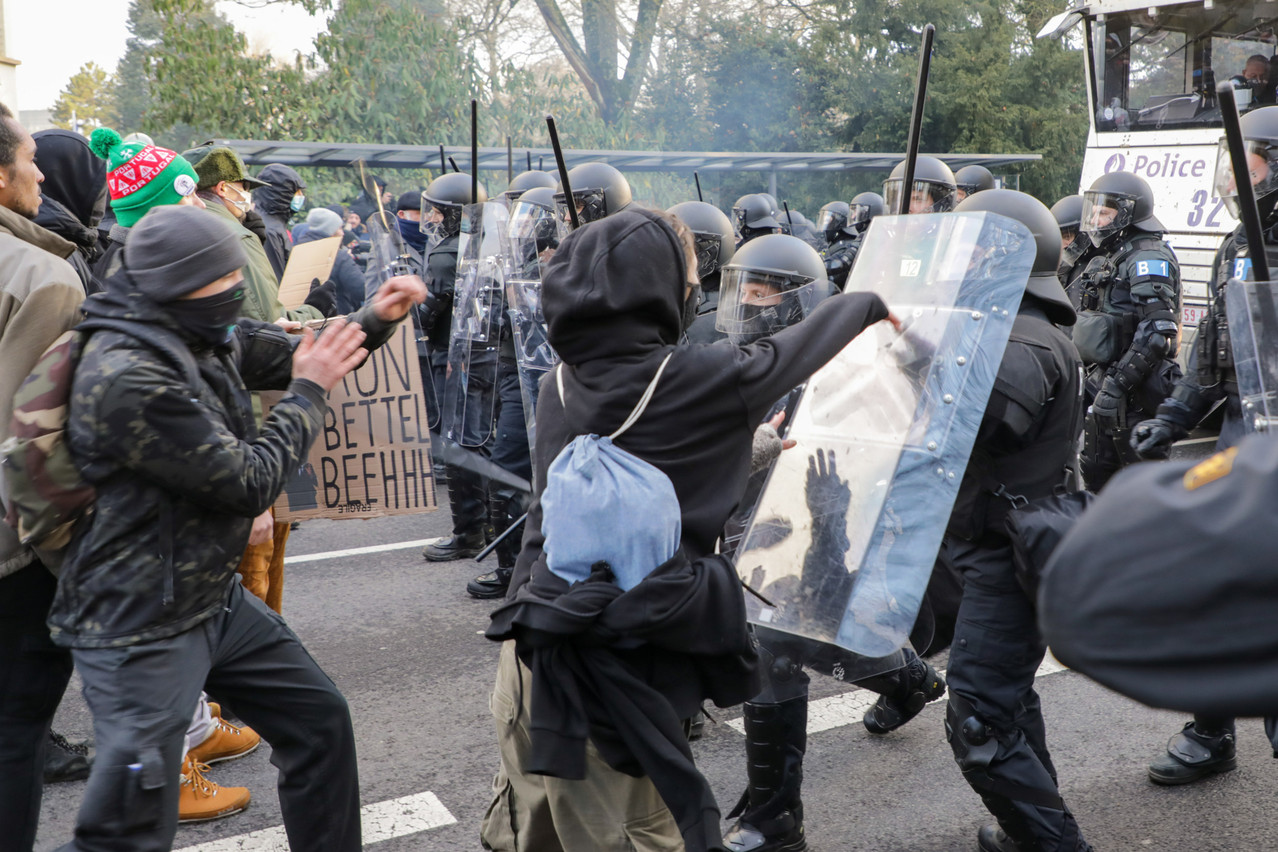In the wake of protests against the government’s pandemic measures, which turned violent on some occasions, justice minister Sam Tanson (déi Gréng) on Wednesday outlined a set of measures that will increase penalties, give the police new powers to investigate crimes and introduce new offences.
Among them is an online phenomenon known as doxing, in which individuals publicly reveal private information about another person with the aim of causing harm to them, a family member or their property.
Under future legislation, this will be punishable by eight days to six months in prison and a fine of €251 to €5,000. However, if the targeted person is a member of government, parliament, another public official or a journalist, the sentence can increase to three months to two years in prison and a fine of €500 to €10,000.
Tanson in January had announced plans to better protect journalists and officials after protesters had gathered outside the homes of prime minister Xavier Bettel (DP) and family minister Corinna Cahen (DP) but also reporters whose personal details were shared in messaging groups by anti-vaccination protesters and covid sceptics and who received death threats.
Anonymous investigations
Penalties for rioting will also be increased, from a maximum of six months currently to up to two years in prison in case of unarmed unrest. Armed rioting will in future carry a penalty of up to three years in prison. Fines are being raised to €5,000.
Spitting at someone, throwing objects or flares will be added to a list of offences labelled as contempt in the penal code. And a new type of threat to public safety--the spreading of potentially dangerous substances--will be added to the list of punishable offences. These substances can include covid-19.
Finally, the police will get greater powers to investigate crimes under a pseudonym, for example, to infiltrate messaging groups. This was currently only possible in case of suspected crimes against the state or terrorist acts. The anonymous investigation must be approved by the prosecutor’s office or an investigating judge.
The government has submitted the draft law to parliament where it is now pending a vote to come into force. However, Tanson would not speculate how long this might take as the state council must also issue an opinion before the bill can proceed.
Police bodycams
In response to the violent protests at the start of December last year, a designated protest zone was set up in the capital. Over 12 weeks, 12 protests took place involving on average 400 police officers. Luxembourg police borrowed a water cannon from Belgium but interior security minister Henri Kox (déi Gréng) on Wednesday said that there are no plans for Luxembourg to buy its own machine.
However, police officers are due to be equipped with so-called bodycams. Kox said that a legal framework for the use of the devices, which allow officers to record any interaction while on duty, is being finalised. The government expects to spend between €6m and €7m, with each officer to receive their own camera similar to their service weapon.
The legal framework will regulate the processing of the footage, who has access to it, how it is stored and other questions, such as its use when officers are off duty.
